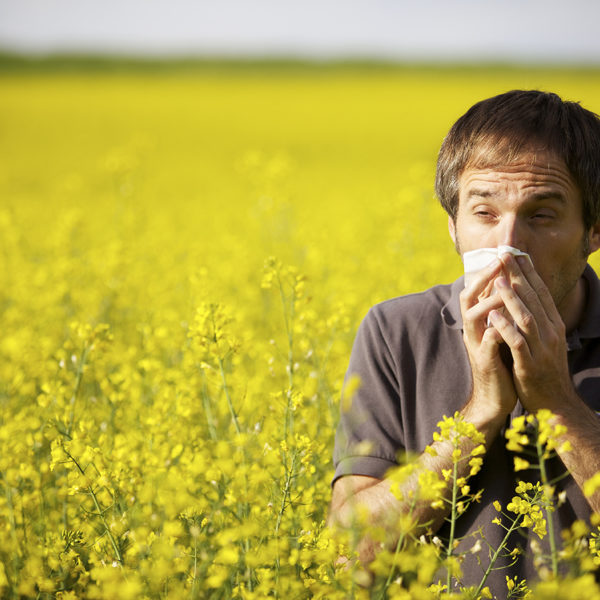Well it is that time of year again! We are coming into hay fever season where certain allergens can really affect some people.
Allergic rhinitis (AKA hayfever) is a very common inflammatory disorder that can affect the membranes of the eyes, nose and skin and can be brought on by systemic inflammation and other inflammatory disorders such as asthma, sinusitis and allergic conjunctivitis (1). Mostly commonly though, hayfever is caused by cyclic pollens or year-round allergens such as mould, dust mites, cockroaches, animal dander, grasses etc. Hayfever can cause a range of different symptoms, the usual suspects being a runny nose, congestion, sneezing and itchy/watery eyes. It has been shown that there is a strong association between allergic and non-allergic asthma and hayfever.

Inhaling an allergen can initiate an immune response, where the immune T helper cells go into overdrive. This rather complex process makes the person sensitised to what would usually be a harmless allergen. The allergen binds to IgE antibodies on the surface of the mast cells, leading to a quick release of histamine. It is the histamine that brings about the common symptoms that are experienced in hayfever such as sneezing, itching and runny nose and eyes (1)(2).
Supporting the immune system, along with minimising the release of histamine is important in the management of allergic rhinitis. Consuming functional super foods and nutrients such as an Australian and organic bee pollen along with vitamin C that contains synergistic nutrients such as hesperidin, zinc and magnesium, can help you to successfully achieve this.

Bee pollen granules are a mix of bee collected floral pollen which is stored with nectar and salivary substances at the entrance of the hive by the worker honey bees (3). It is rich in flavonoids, polyphenols, and carotenoids along with other healthy compounds such as, vitamins, minerals, amino acids, enzymes, lipids and fatty acids. Flavonoids provide several beneficial health effects and possess anti-allergic, antioxidant and anti-inflammatory properties. It has been shown that flavonoids and polyphenolic compounds as well as vitamin C inhibit the release of histamine and the level of inflammation in the body, they both also help support and boost the immune system (3)(4).
Although hayfever is not a serious disease as such, it can really affect your quality of life, work/study productivity and emotional wellbeing so getting on top of what is causing the onset of allergy for you is important.
- Greiner, A. N., Hellings, P. W., Rotiroti, G., & Scadding, G. K. (2011). Allergic rhinitis, 378 (9809). The Lancet, 2112-2122. https://www.ncbi.nlm.nih.gov/pubmed/21783242
- Arbuckle, J. (2017). Severe allergic rhinitis, perennial sinusitis and antihistamine dependence resolved with naturopathic treatment: A case study and short literature review, 29 (4), 142-148. https://search.informit.com.au/documentSummary;dn=356329700377279;res=IELHEA
- Masoomeh, J., Shoushtari, M. S., Majd, A., Zahra, P. (2017). Bee pollen flavonoids as a therapeutic agent in allergic and immunological disorders. Iranian Journal Of Allergy Asthma Immunology, 16 (3), 171-182. https://www.ncbi.nlm.nih.gov/pubmed/28732430
- Carr, A. C., Maggini, S. (2017). Vitamin C and immune function. Nutrients, 9(11), 1-25. https://www.ncbi.nlm.nih.gov/pmc/articles/PMC5707683/pdf/nutrients-09-01211.pdf


